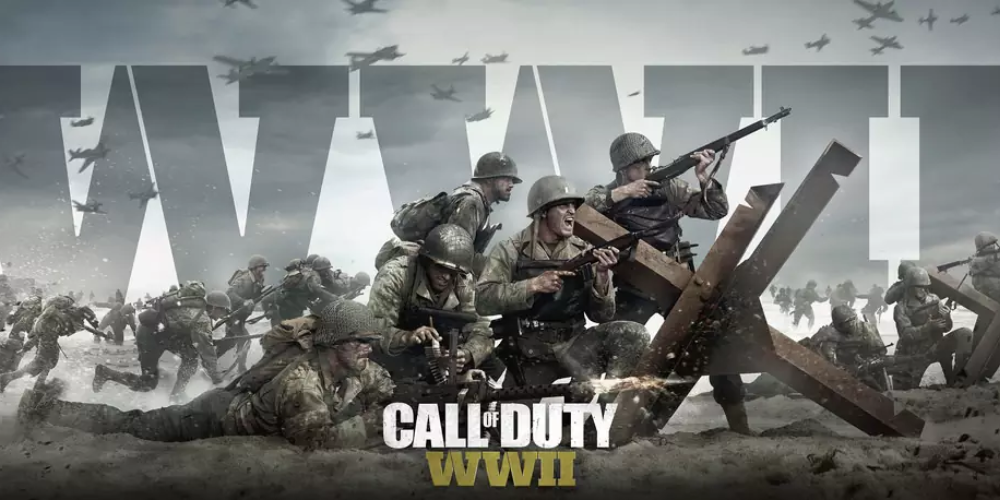"Call of Duty": The Evolution of a First-Person Shooter Legend
23 Feb 2024

Spanning nearly two decades, the Call of Duty (CoD) series has become a cornerstone in the world of first-person shooters (FPS). Not only has it defined and redefined aspects of the genre, but it has also provided players with memorable narratives, characters, and groundbreaking multiplayer experiences. From its inception in the early 2000s to its position as a cultural staple today, the journey of Call of Duty is one of innovation, rivalry, and evolution. This comprehensive exploration dives into the rich history and developmental milestones of this iconic series, demonstrating its significant impact on both the gaming industry and the evolution of digital entertainment.
Origins and Early Success
The birth of Call of Duty in 2003 marked a turning point in the realm of FPS games. The original game departed from the fantastical and futuristic themes prevalent in the genre at the time. Instead, it offered a gritty, realistic portrayal of World War II, setting a new standard for immersion in video games. Players were no longer lone combatants against overwhelming odds but part of a squad, adding a new layer of authenticity to the gameplay. With its detailed environments, historically inspired missions, and emphasis on squad-based tactics, Call of Duty not only captivated gamers but also laid the groundwork for its future as a franchise.
A New Era of Warfare: Modern Combat
In 2007, the series took a bold leap with the release of Call of Duty 4: Modern Warfare. Shifting away from the World War II setting, this title introduced players to contemporary combat scenarios, featuring state-of-the-art weaponry, new gameplay mechanics, and a gripping story that reflected the complexities of modern military engagements. It was both a critical and commercial success, redefining what players expected from the franchise and the FPS genre. Modern Warfare's multiplayer component, in particular, revolutionized online gaming with its progression system, customization options, and various modes, creating a template that many games have since emulated.
Expanding Horizons: Diverse Settings and Stories

Following the success of Modern Warfare, the Call of Duty series expanded its narrative and gameplay horizons. Titles like Call of Duty: World at War returned to the historical roots of the series. Meanwhile, games such as Black Ops ventured into the Cold War and beyond, delving into espionage and offering players covert warfare scenarios. Each installment brought new settings, characters, and technologies to the forefront, ensuring the series remained fresh and engaging. This era of Call of Duty not only explored different periods and conflicts but also experimented with narrative depth and complexity, introducing players to stories of betrayal, conspiracy, and the moral ambiguities of war.
Futuristic Frontiers: Science Fiction and Innovation
As the series progressed, Call of Duty ventured into the realms of science futuristic Warfare. Titles like Advanced Warfare and Infinite Warfare showcased exoskeleton suits, space combat, and high-tech weaponry, pushing the boundaries of the series' traditional combat and storytelling. This new direction was met with mixed reactions from the gaming community. Some applauded the innovation and fresh take on the genre, while others longed for the series to return to its more grounded, historical roots. Despite the divided feedback, these entries demonstrated the franchise's willingness to explore new ideas and continue evolving in a highly competitive market.
Return to Form: Going Back to Basics

Listening to community feedback, the developers made a decision to return the series to its roots with Call of Duty: WWII and, later, a modern-day reboot of the iconic Modern Warfare. These titles focused on delivering more realistic and historical narratives, reflecting on the human cost of war and the heroism of soldiers. The return to historical accuracy and a more grounded approach was widely praised, reigniting interest in the series for veteran fans and new players alike. By revisiting its origins, Call of Duty reaffirmed its commitment to telling compelling stories while still pushing forward with gameplay innovations and improvements in graphics and mechanics.
Esports and Community Engagement
Beyond its single-player campaigns and multiplayer modes, Call of Duty has significantly impacted the esports scene. With the launch of the Call of Duty League, the series has cemented its place in competitive gaming, attracting teams, sponsors, and audiences from around the world. The franchise's focus on community engagement has also led to the development of comprehensive seasonal content, in-game events, and collaborations with brands and celebrities, further enhancing its cultural footprint. This commitment to supporting a vibrant player community and fostering competitive play has helped ensure the series' longevity and relevance in the gaming world.
Adapting to a Changing Landscape: Warzone and Beyond

The release of Call of Duty: Warzone marked another significant milestone for the franchise. As a free-to-play battle royale game, Warzone adapted to the changing landscape of the gaming industry, offering an accessible and engaging experience that attracted millions of players. Its success demonstrated the versatility of the Call of Duty brand and its ability to innovate within popular gaming trends. Looking towards the future, the series shows no signs of slowing down, with developers continuing to explore new stories, gameplay mechanics, and multiplayer experiences that will shape the direction of first-person shooters for years to come.
Conclusion: A Legacy of Innovation and Influence
From its humble beginnings to its status as a behemoth in the entertainment industry, the journey of Call of Duty is a testament to the series' impact on gaming and popular culture. Through its evolution, the franchise has navigated shifts in technology, player expectations, and the broader entertainment landscape, consistently staying at the forefront of the FPS genre. By embracing change while honoring its roots, Call of Duty has carved out a legacy of innovation, influence, and enduring popularity. It remains a defining force in the world of video games, promising new adventures and unforgettable experiences for players around the globe.







